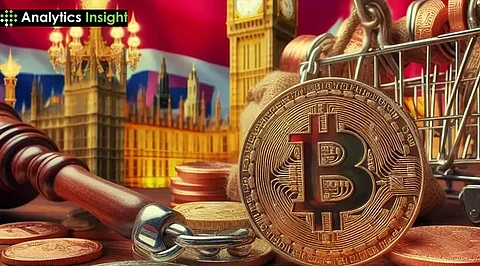The United Kingdom has announced plans to compensate victims of a significant investment fraud case involving the seizure of 61,000 Bitcoins, valued at approximately $6.8 billion. The fraud was orchestrated by Zhimin Qian, a Chinese national who ran a fraudulent scheme from 2014 to 2017 under the guise of a company named Tianjin Lantian. This scheme deceived over 128,000 individuals in China, leading to severe financial losses.
Following Qian’s entry into the UK with a fake document, authorities began confiscating assets in 2018. By 2021, law enforcement had completed the seizure of these assets, marking it as one of the largest recoveries of cryptocurrency globally. The Metropolitan Police later recovered an additional £67.3 million in cryptocurrency after Qian provided access to her digital wallets during her arrest in April 2024. Two other Chinese nationals faced charges in the UK for laundering the illicit funds, while Qian pleaded guilty to acquiring criminal property.
Legal Framework for Victim Compensation
The UK is currently deliberating on the distribution of the seized Bitcoin, with prosecutors indicating plans to introduce a compensation program for victims. However, specific details regarding eligibility criteria and the payment process remain undisclosed. Some victims have already submitted claims in UK courts to recover their lost investments.
Lawyers representing affected investors highlight the widespread devastation caused by the fraud. William Glover, a lawyer involved in the case, pointed out the emotional and financial toll inflicted on families, marriages, and businesses by the scheme. There is a growing demand for restitution, yet legal experts caution that the UK might retain control over the confiscated property under the Proceeds of Crime Act.
Concerns have also been raised by Nick Harris, CEO of CryptoCare, who warned that without a victim-first approach, the government may utilize these funds for budgetary purposes. Historically, seized assets have been allocated to government initiatives, such as the Asset Recovery Incentivization Scheme.
Global Implications of the Seizure
This case has ignited international discussions regarding the regulation of digital asset seizures and compensation for victims. The $6.8 billion seizure exceeds previous high-profile cases, including the Silk Road asset recovery, prompting increased scrutiny of how governments manage confiscated cryptocurrencies.
As Bitcoin’s value reaches $111,436.30, the significance of such cases continues to grow. Market analysts suggest that the outcomes of this case could shape future policies surrounding the treatment of confiscated digital assets. While the United States retains billions in digital assets for potential future use, Germany has opted to sell its cryptocurrencies, illustrating varying approaches to asset management.
The UK now faces the challenge of balancing public interest, victim justice, and regulatory standards in the wake of this historic seizure. The outcome will likely influence not only national policies but also set a precedent for how similar cases are handled globally.
